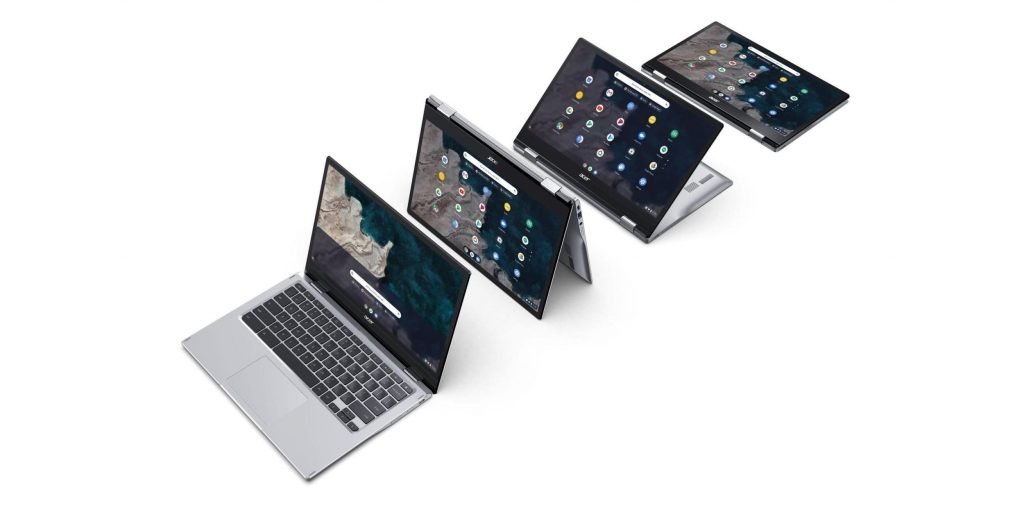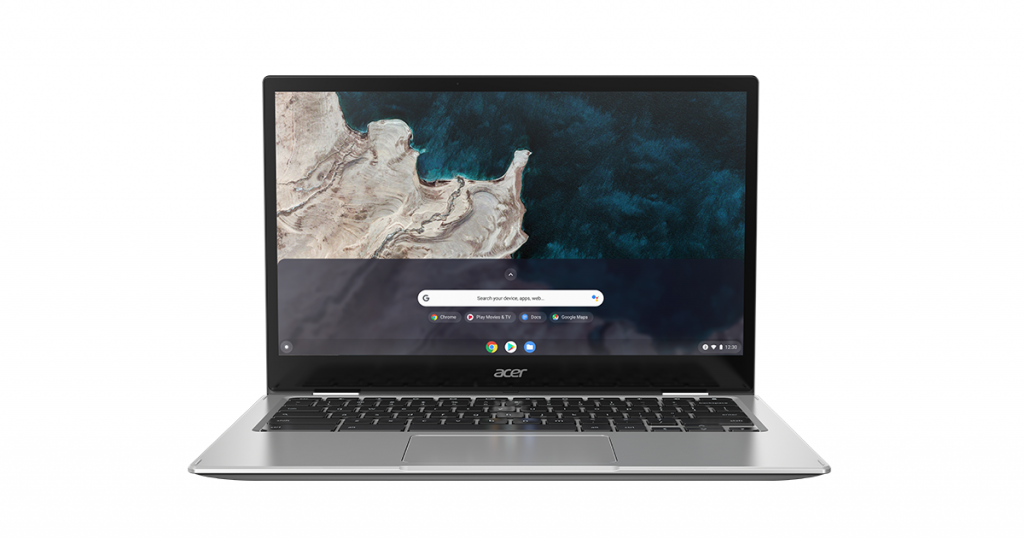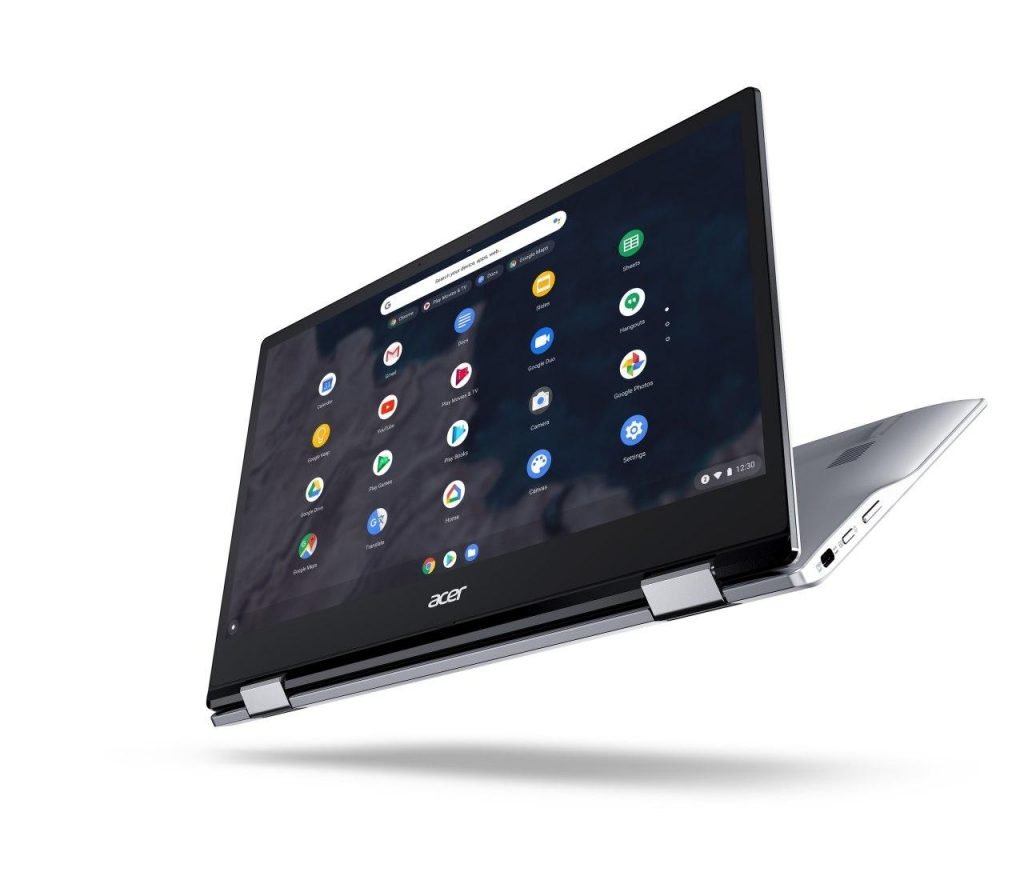For years, Microsoft and Qualcomm have put Snapdragon-powered laptops such as the Flex 5G and Microsoft Surface Pro X as superior, to their Intel-powered counterparts, to modest success. Compatibility problems of Windows applications with the ARM architecture of Snapdragon make such laptops slow to use, a crucial weakness considering their often-astronomical price tags.
So Qualcomm changed gears quietly to switch Snapdragon laptops away from their original luxury flagship focus and to low-cost workhorses for schools and customers who worry more about cost than performance. Two lower-cost Snapdragon processors, the 8c and 7c, were launched in late 2019 to complement the 8cx intended for flagships like the Yoga 5G. Initially, the change did not seem to bear fruit, with only two low-cost, obscure 7c versions, the JP.IK Turn T101 and Positivo Wise N1212S, planned for sale this year.
Acer Chromebook Spin 513, the 1st 7c-powered Chromebook
Qualcomm agreed to do so. The Acer Chromebook Spin 513, the first 7c-powered Chromebook, is slated to go on sale at a starting price of $400 in February. It’s a sleek, ultra-compact, 2.64-pound laptop with a 360-degree folding hinge. The bottom of the Chromebook market hovers about half that price, which is not a screaming bargain. But by far, it will be the cheapest Snapdragon laptop, and it will also have niceties that include a battery life of 14 hours, a Gorilla Glass-coated screen, USB Type-C, and optional LTE connectivity.
Chromebooks do not need a lot of computational resources, especially for students who usually do a single task at a time, such as attending a Zoom class or writing an essay. But comparing a Snapdragon 7c-powered product like the Spin 513 to the legions of MediaTek and Intel Pentium versions currently on offer would always be fascinating.
Compared with the two cores of most Intel and MediaTek versions, the Snapdragon 7c’s Kyro 468 computing unit has eight processor cores. And the Chrome operating system has been ARM-compatible from the beginning, unlike the painful process of modifying Windows applications to run on ARM chips.
For now, Qualcomm isn’t the only chip manufacturer focused on Chromebooks. AMD has also recently announced that it is adding Chromebooks to its much-lauded Ryzen processors. This year, the fourth-generation Ryzen chips dominated Snapdragon as the key alternative to Intel’s Core CPUs in the luxury Windows ultra-portable laptop market. With Chromebook processors now being sold by Intel, AMD, Qualcomm, and MediaTek, the industry is expected to receive a jolt of attention at a time when it is much desired by customers.




1 Comment
Pingback: New Samsung Galaxy Book Pro and Galaxy Book Pro 360 are OLED Screen Lightweight laptops - Craffic